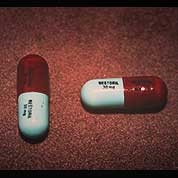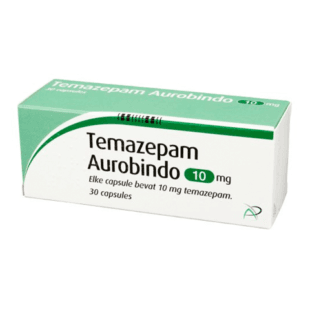Reliable Insomnia Medications for a Restful Night's Rest
Sleep problems positions a considerable obstacle for several individuals, frequently causing a decrease in total well-being. A range of medicines, both prescription and non-prescription, exist to resolve this prevalent issue, ranging from traditional sedative-hypnotics to much more contemporary options. The effectiveness and safety of these options can differ substantially amongst people. Recognizing the subtleties of each kind, together with the prospective dangers involved, is vital for making notified decisions about treatment. This expedition will certainly reveal one of the most appropriate options and considerations to ensure a genuinely corrective night's sleep.
Sorts Of Sleeplessness Medications
Many sorts of medicines are offered to address sleep problems, each made to target particular aspects of rest disturbance. Largely, sleeplessness medications can be classified into 2 primary teams: sedative-hypnotics and non-sedative options.
Sedative-hypnotics, that include benzodiazepines and non-benzodiazepine sleep help, are commonly suggested to generate sleep. Benzodiazepines, such as diazepam and lorazepam, job by improving the effects of the natural chemical gamma-aminobutyric acid (GABA), resulting in boosted sedation. Non-benzodiazepine medications, like zolpidem and eszopiclone, are made to offer a quicker start of sleep with possibly less negative effects and a reduced risk of reliance compared to standard benzodiazepines.
On the other hand, non-sedative options consist of medications like melatonin receptor agonists, which simulate the all-natural hormone melatonin, and specific antidepressants that have sedative residential properties. These options could be better for people with coexisting mood conditions or those that prefer to prevent standard rest medications.

Usual Prescription Alternatives
Several usual prescription choices are offered for dealing with sleep problems, each with distinctive mechanisms and effects. They enhance the effects of the natural chemical gamma-aminobutyric acid (GABA), advertising leisure and rest start.
Non-benzodiazepine hypnotics, consisting of zolpidem and eszopiclone, are liked choices. These medicines target certain receptors in the mind, causing quicker beginning of rest with a lowered threat of reliance compared to benzodiazepines. Nevertheless, they may still cause side effects such as dizziness or cognitive problems.
Melatonin receptor agonists, such as ramelteon, offer one more choice by imitating the action of melatonin, a hormonal agent that manages sleep-wake cycles. This class of medication is non-habit forming and is particularly helpful for individuals with circadian rhythm disorders.
Last but not least, specific antidepressants, consisting of trazodone and amitriptyline, might be recommended off-label for sleeping disorders because of their sedative impacts. Each of these choices need to be reviewed with a healthcare provider to determine one of the most suitable treatment based upon individual demands and prospective adverse effects.
Over-the-Counter Solutions
Over-the-counter (OTC) services for insomnia are often looked for by people looking for choices to prescription medicines. These solutions frequently consist of ingredients that promote relaxation and help rest onset.
An additional preferred OTC service is melatonin, a hormonal agent naturally created by the body that manages the sleep-wake cycle. Melatonin supplements can be specifically effective for those experiencing jet lag or shift job-related rest disruptions. They are generally well-tolerated, although the ideal dose can vary among individuals.
Natural supplements, such as valerian origin and chamomile, are additionally readily available in the OTC market. These natural products are believed to have calming impacts, though scientific evidence sustaining their efficiency is combined. It is important for consumers to speak with health care experts before utilizing any type of OTC sleep problems drug to ensure safety and avoid interactions with other medications. Ultimately, while OTC solutions can be advantageous, they ought to be used thoughtfully and as part of a comprehensive method to sleep health.
Natural Solutions and Alternatives
The quest of restful rest has led numerous people to check out all-natural solutions and options that may supply alleviation from sleeping disorders. Various choices, frequently stemmed from standard practices and all natural approaches, have gotten popularity amongst those seeking non-pharmaceutical interventions.
Organic supplements such as valerian passionflower, root, and chamomile are regularly used for their relaxing properties. Valerian origin, in particular, has been researched for its potential to enhance sleep high quality and reduce the time it requires to sleep. Chamomile, frequently eaten as a tea, is renowned for its mild sedative impacts, making it a calming choice for night leisure.
Furthermore, way of living modifications can substantially impact sleep high quality. Practices such as yoga exercise and reflection advertise relaxation and decrease stress and anxiety, potentially relieving sleeping disorders signs. Aromatherapy, using vital oils like lavender and bergamot, is one more avenue that some people locate helpful in developing a relaxing rest setting.
While these all-natural solutions might provide relief, it is important to approach them with understanding and get in touch with a healthcare professional, especially when integrating with other treatments. Each individual's reaction may vary, emphasizing the significance of customized techniques for accomplishing restorative sleep.
Tips for Safe Use
When browse around this web-site thinking about the usage of sleeplessness medicines, it is vital to focus on safety to minimize possible you can look here threats and boost efficiency. First, seek advice from a healthcare specialist to review your certain sleep issues, existing clinical problems, and any type of other drugs you may be taking. This can aid determine the most ideal drug and dose for your needs.
Second of all, adhere strictly to the suggested dosage and timing. Overuse or abuse can cause dependency or damaging negative effects. It is likewise a good idea to avoid blending sleeping disorders medications with alcohol or leisure drugs, as this can dramatically enhance the threat of hazardous communications.

Conclusion


Sedative-hypnotics, which include benzodiazepines and non-benzodiazepine sleep help, are commonly recommended to cause sleep. Non-benzodiazepine drugs, like zolpidem and eszopiclone, are designed to offer a quicker beginning of sleep with potentially fewer side results and a reduced risk of reliance contrasted to conventional benzodiazepines.
These medications target details receptors in the brain, leading to quicker start of sleep with a minimized check here danger of reliance compared to benzodiazepines. Get in touch with a medical care expert to review your details rest problems, existing medical problems, and any kind of other medicines you might be taking.Additionally, check your rest patterns and side effects very closely.